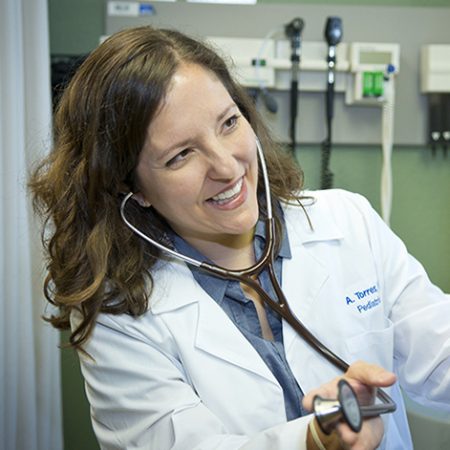
Working with partners statewide, the Florida State University College of Medicine is preparing to significantly expand the body of knowledge physicians have available in caring for their patients, including more than a million residents of the Big Bend region and South Georgia.
The College of Medicine on July 21 received notice of $1.5 million in funding to help establish a statewide research network of community-based health-care providers and their patients in order to conduct comparative effectiveness research. The funding represents a portion of $7.9 million awarded to the OneFlorida Clinical Research Consortium by the Patient-Centered Outcomes Research Institute (PCORI), an independent non-profit, nongovernmental organization located in Washington, D.C. Final award details are pending completion of a business and programmatic review by PCORI staff and negotiation of a formal award contract.
“This type of research is designed to help health-care providers make better treatment and care decisions for their patients by providing scientific evidence on the effectiveness and benefits of various interventions,” said Myra Hurt, senior associate dean for research and graduate programs at the College of Medicine. “That includes things like medical tests, administration of pharmaceutical drugs, treatment devices and ways to deliver health care.”
The OneFlorida Clinical Research Consortium includes the University of Florida, Florida State University and the University of Miami. The consortium involves the FSU College of Medicine Clinical Research Network, UF Clinical Translational Science Institute and UF Health, University of Miami Health, Health Choice Network-Florida Regional Extension Centers, the Florida Agency for Health Care Administration and the Florida Department of Health.
The three-year funding will help the consortium establish a network that will include 914 clinic/practice settings, 4,100 physicians, 22 hospitals and 9 million patients, or 40 percent of all Floridians.
The FSU College of Medicine’s partners include the FSU College of Communication and Information, Tallahassee Memorial HealthCare, Capital Health Plan, Florida Hospital in Orlando and Orlando Health.
“In addition, we have developed valuable partnerships with Federally Qualified Health Centers and community health centers in Central and Southwest Florida, including Immokalee, which has quite possibly the most diverse patient population of any region of the state,” said Michael Muszynski, associate dean for clinical research and dean of the medical school’s Orlando Regional Campus.
Throughout Florida, the College of Medicine will be able to involve the majority of the 2,500 physicians who teach FSU medical students. Relationships developed over the past 12 years through the College of Medicine’s network of community-based faculty physicians is providing an opportunity to involve patients from those communities in the research consortium. More than 500 physicians in Central Florida are part of the College of Medicine faculty.
““We are extremely pleased to be involved in the OneFlorida Clinical Research Consortium,” said Orlando Health Chief Operating Officer Jamal Hakim. “We believe the data that we and the other partners will provide, coupled with the knowledge we will gain from this vast project, will greatly benefit patients throughout the Central Florida region and across the state.”
In Florida, a small and traditionally homogeneous portion of the 20 million residents is represented in research studies that occur in academic health centers. By developing a broad and inclusive network, the College of Medicine will be able to help physicians gain access to data more representative of the state’s population.
An example is the patient population served by Tallahassee Memorial HealthCare.
“TMH’s service area includes rural and urban communities, characterized by racial and ethnic diversity, wide variations in socioeconomic status and a range of health-care needs,” said TMH President and CEO Mark O’Bryant. “The diversity of TMH patient populations and their health-care needs is an excellent fit with research focusing on, for example, hypertension, obesity and rare diseases. Obesity and the co-occurring problems of diabetes and cardiovascular disease are particularly prevalent in our rural communities.”
The PCORI funding focuses on helping the OneFlorida Clinical Research Consortium harness patient data from a wide variety of locations. Collecting, de-identifying, organizing, storing and utilizing those data is an expensive and complicated process.
“But it’s also an invaluable process,” said Paula Fortunas, president and CEO of the TMH Foundation. “We are dedicated to contributing to research that improves the quality and outcomes of care for patients.”




